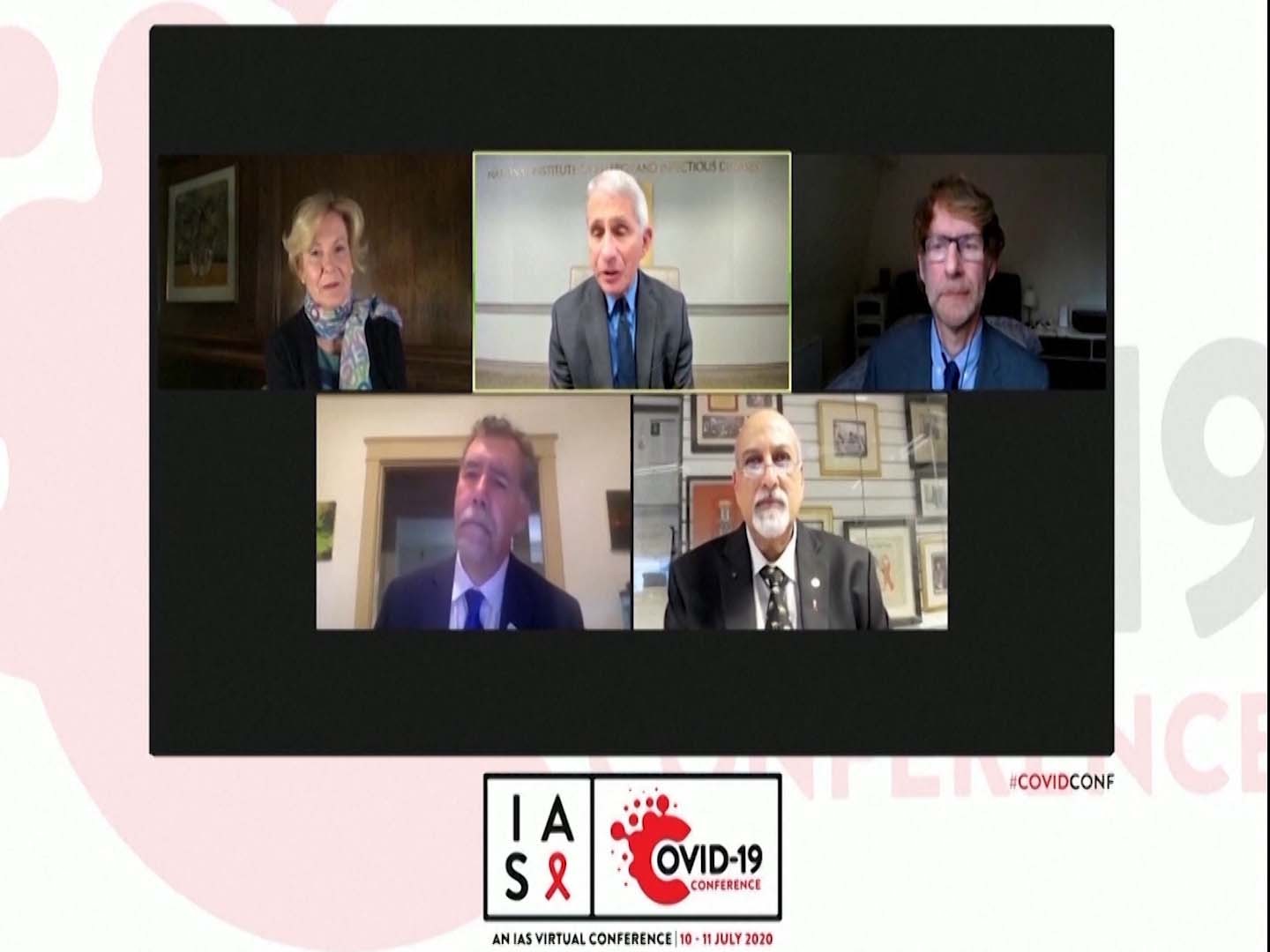Billionaire philanthropist Bill Gates and UN Secretary-General Antonio Guterres have called for COVID-19 drugs to go to countries that need them the most, not to the "highest bidder."
Their statements were made during a virtual COVID-19 conference organised by the International AIDS Society.
The biggest global gathering of those fighting against AIDS was held in the shadow of the coronavirus pandemic this year - held virtually for the first time - and extended by two days to discuss COVID-19.

An image of the virtual conference organized by the International AIDS Society.
The UN's Guterres said that like HIV, the response to COVID-19 must be fair and not driven by political choices:
"The COVID-19 crisis is a wake-up call. Economies and societies must be reshaped to be fairer and more inclusive. Effective treatment and the future vaccine against the coronavirus must be available to everyone everywhere as a global public good - a people's vaccine," he said.
With hundreds of COVID-19 vaccine projects under way and governments in Europe and the U.S. investing billions of dollars in research, trials and manufacturing, there is concern that richer nations could scoop up promising treatments, leaving developing countries empty-handed.
The European Commission and the World Health Organization have warned of an unhealthy competition in the scramble for a vaccine that would both save lives and resolve economic chaos caused by the virus.
Some officials in Washington have indicated they would seek to prioritize U.S residents.
Gates echoed Guterres' call, saying vaccines should not go only to those who could afford them.
"If we just let drugs and vaccines go to the highest bidders instead of to the people and the places where they're most needed, we'll have a longer, more unjust, deadlier pandemic," he said.
"We need leaders to make these hard decisions about distributing based on equity, not just on market-driven factors."
Gates added that the pandemic has also disrupted global supply chains for treatments for other diseases, including AIDS.
This, he argued, could limit access to medicines for hundreds of thousands around the world.


